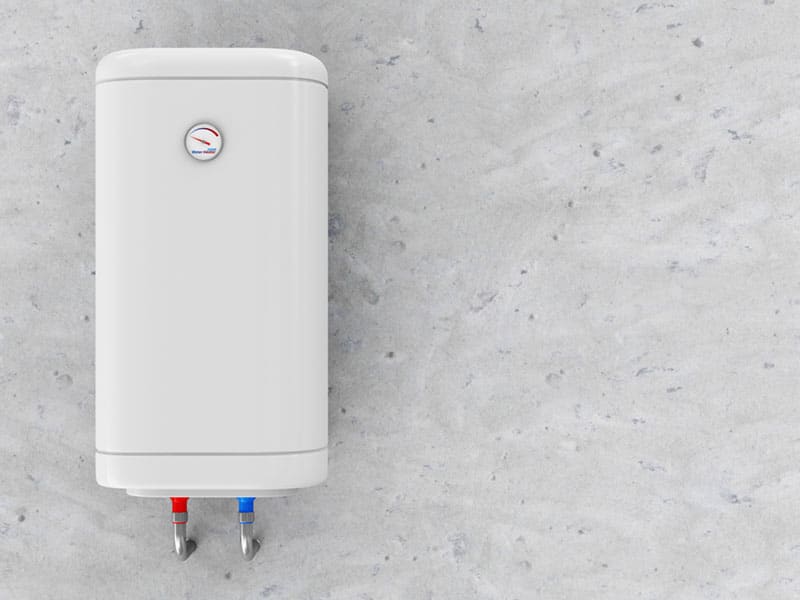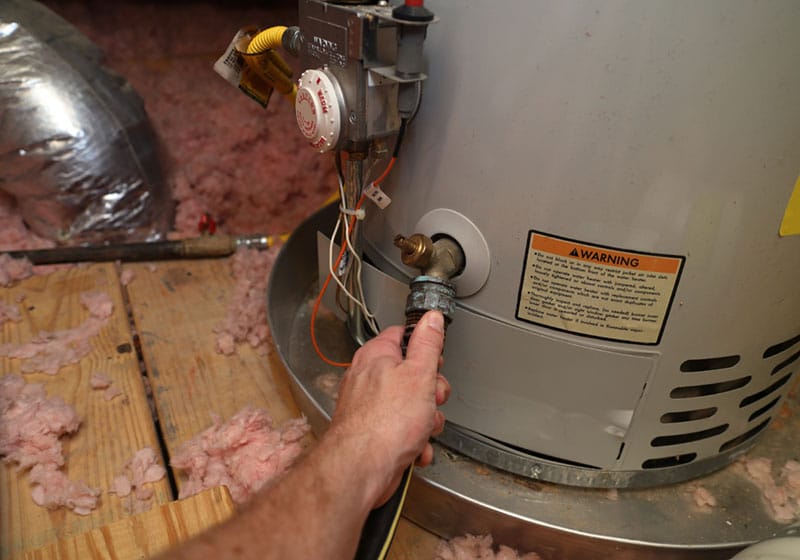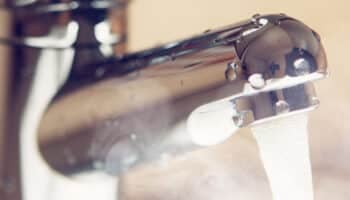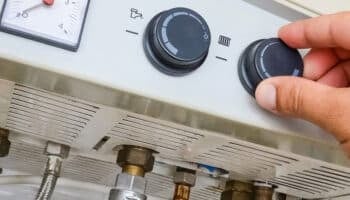We've independently reviewed this article to make sure it's as accurate as we can make it.
To find out more about our article creation and review process, check out our editorial guidelines.
What should you do if your water heater won’t stop draining? Check out the 4 tricks in this article that will help you stop the unit from pouring water and your money down the drain.
Here are 4 tricks to try if your water heater won’t stop draining
- Check the unit for leaks. If there are any, repair them.
- Insulate the heater with insulating wrap
- Drain your tank to clear out any sediment build-up
- Replace the tank
If your water heater won’t stop draining, that means it isn’t working properly. Are you ready to fix yours? Then check out these 4 tricks in more detail below.

4 Ways to Stop Your Water Heater From Draining
Some noises set the soundtrack for a normal day at home. The quiet buzz of the refrigerator running. The low grumble of the heating as it cycles on. Even the high-pitched creak of the door hinges turning. But if there’s one sound that makes us feel a little concerned, it’s the relentless draining of a water heater.
And let’s be frank, you’re not wrong to feel a little uneasy if you hear your water heater draining non-stop. Something is definitely wrong. That is why the next section of this article will help you to pinpoint your unit’s problem and fix it.
#1 Check the Water Heater For Leaks
One of the most common reasons why a water heater constantly drains is because it has a leak. If your water heater is leaking, it will have to keep draining in order to make up for the loss of hot water.
In this case, you should tend to the problem immediately. Here are just two reasons why.
- A leak, even a small one can do a lot of damage to your home. It can water stain your flooring, ceiling, and seep as far as your drywall. Leaks are expensive to repair when left for a long time and attract mold.
- If your water heater is constantly draining, it will increase your energy bill
So how can you check your water heater for a leak? Here is a list of the areas you can check and what you should do if they’re leaking.
| Where to check for a leak | What you should do if you find a leak |
|---|---|
| The temperature relief valve hose | Replace the temperature relief valve |
| The temperature relief valve thread | Seal the thread with plumber’s tape |
| The drain valve | If the drain valve is plastic, replace it with a brass valve. If the thread is leaking, seal it with plumber’s tape. |
| The thread connections from the hot and cold pipes leading to the tank | Call a plumber to repair the problem |
| The inner tank, inside the door cover | Replace the tank |
Do you fancy taking a look at those steps in some more detail? Then make sure you have a look at this tutorial video.
#2 Drain the Water Heater to Remove Sediment
Ok, so here comes tip number 3. Draining your water heater. Now, I know what you’re thinking… hasn’t it done enough of that already? Although your water heater is already partially draining, it needs a drain completely. This will help it get rid of the things that could be blocking it. This includes some of the following.
- Sediment and other debris
- Minerals
- Trapped air
How can you make sure that draining your water heater is the right step for you? If your water heater has some of the following problems, it may need draining.
- You can hear air popping noises inside the tank
- It is difficult for the unit to heat the water sufficiently
- The water won’t stop draining
- It has been more than 6 months since you last drained the heater
Are you ready to drain your water heater? Then you’ll need the following equipment
You Will Need
- Garden Hose
Here’s how you can drain your water heater.
- Turn off the electricity or gas to the water heater. For an electric heater, use the circuit breaker. For gas, turn the thermostat to the pilot setting.
- Turn off the water supply to your water heater.
- Leave the heater overnight to allow time for the water to cool down
- Attach your garden hose to the tank drain at the bottom of the tank. Place the other end of the hose into a floor drain outside the house.
- Open the nearest hot water faucet
- Open the drain valve
NOTE. Be careful while completing this step as hot water will be flowing from the tank
- Once the tank is empty, briefly open the cold water faucet. Let it run for a few minutes to flush out any of the remaining sediment in the tank.
- Turn off the faucets
- Turn the drain valve off
- Remove the garden hose
- Turn the water heater back on

#3 Replace the Water Heater
How old is your water heater? A typical water heater will last anywhere between 6 and 13 years. But to be honest, once you get into double digits, it’s all a bit touch and go. If your water heater is more than 13 years old, it might be a better idea for you to replace it than to try patching it up. Here’s why.
- The warranty on a typical water heater is about 5 to 6 years. So if you need any repair work after that time you’ll have to fund it yourself.
- Replacement parts and maintenance work are expensive
- Replacement parts for older water heaters may be difficult to find
- Once an old water heater stops working properly, the problems it develops begin to snowball. It will be one thing after the next until you’ve practically replaced the whole thing.
Now, I know that replacing a water heater is an expensive job. But it is better to replace it than to keep doing pricey, mini repairs on your old one that will throw in the towel soon.
Take a look at this video that explains more about how you can tell if it is time you replace your water heater.
Conclusion
Are you having trouble with a water heater that won’t stop draining? Then you’re no doubt worried about this problem sky-rocketing your energy bill and turning into a big leak. I’m sure this article has shown you 4 things you can do to fix this water heater problem.
Has this article been helpful to you? If so, then make sure you check out some of our other articles and free guides. You could even sign up to our email list.
Have a great day!
-Craig







